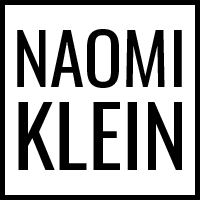Keeping Us Out Before We Get There
March 21st, 2001By Naomi Klein "I am worried that free trade is leading to the privatization of education," an elementary school teacher in Ottawa tells me. "I want to go to the protests in Quebec City, but is it going to be safe?" "I think NAFTA has increased the divide between rich and poor," a young mother in Toronto tells me. "But if I go to Quebec, will my son get pepper-sprayed?" "I want to go to Quebec City," a Harvard undergraduate active in the anti-sweatshop movement says, "but I heard no one is getting across the border." "We're not even bothering to go to Quebec City," a student in Mexico City says. "We can't afford to get arrested in a foreign country." If you think that the next big crackdown on political protest is going to take place when 5,000 police officers clash with activists outside the Summit of the Americas in Quebec City next month, you are mistaken. The real crackdown is already taking place. It is happening silently, with no fanfare, every time another would-be protester decides not to publicly express his or her views about the proposed free-trade area of the Americas. It turns out that...

